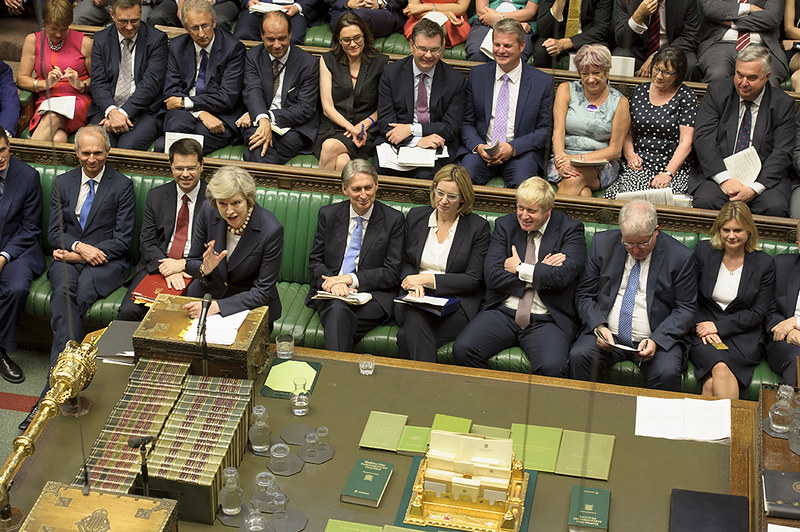21 May 2019 | UK NEWS
The Prime Minister has today announced her latest – and presumably final – attempt to ask to Commons to ratify her Withdrawal Agreement in Parliament. The most sensational element of her statement was her commitment to offering MPs the chance to vote on holding a second – or ‘confirmatory’ – referendum, but only if they vote the WA through first.
This would appear to be the end result of the Government’s cross-party talks with Labour, within which many powerful voices had been calling for any deal to be put to the people in a referendum. The compromise that has been struck is seemingly that the Government is only willing to allow MPs a vote – presumably, a free vote? – on whether or not to do this.
The Prime Minister stated that today’s proposals would constitute a “new deal” to be put to the House, differing in substance from the previous offerings that it has voted down three times since the start of the year. She has also promised the 1922 Committee that she will set out a timetable for her departure in the aftermath of this final vote, regardless of the outcome.
The proposals outlined by Theresa May today include seeking frictionless trade insofar as possible, by maintaining EU rules and standards on goods and agri-food products to avoid or minimise border checks. A new bill is also to be introduced to make it a matter of law that workers’ rights will be no less protected in Britain than they are in the EU. Nor are there to be any changes to environmental standards.
In terms of trade, the Prime Minister is proposing to offer MPs a choice between the Government’s current customs proposals as outlined in the Withdrawal Agreement, or Labour’s compromise proposal that involves a temporary customs union in goods alone. This proposal also stipulates that the UK should have some input in EU decision-making on this in relevant areas, along with an understanding that these arrangements could be altered in the future. Exactly how this would work or how the EU would respond to such a proposal remains unclear, although changes to the Political Declaration would be sought to embed this.
Furthermore, MPs would need to approve the negotiation objectives for our future relationship with the European Union, while the Government would also be legally obliged to find alternative arrangements to the backstop by the end of 2020. A final commitment is that Great Britain and Northern Ireland must remain aligned in the event of the backstop coming into force regardless, which would effectively create a single customs territory between the whole of the UK and the EU.
It comes as the fledgling Brexit Party holds its final rally before the European elections this evening, this time in London. Its leader, Nigel Farage, has decided to prosecute the man who threw a milkshake over him this week. The Express reports that he has complained of “double standards” on the part of the public in respect of himself versus other politicians.
Meanwhile, The Independent carries a story today reporting that some EU citizens in the UK are worried about being turned away from polling booths on Thursday, owing to an additional form they are required to fill in as foreign nationals.






















